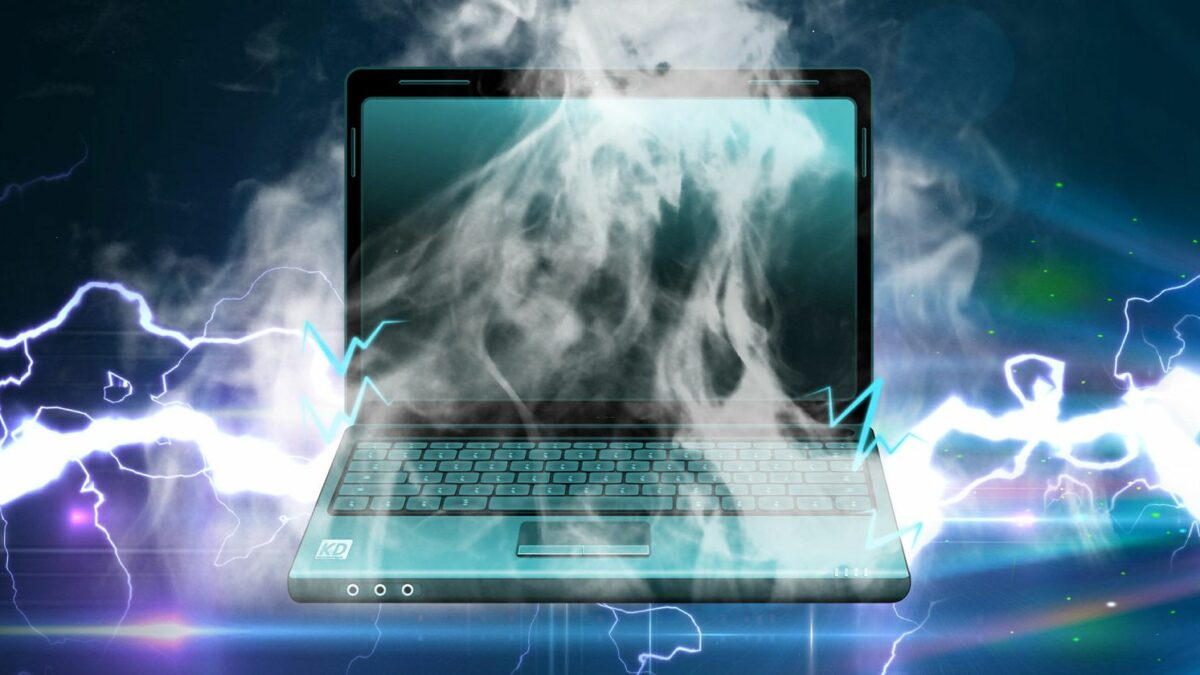As long as you are not overvolting your CPU, and your CPU/GPU temperatures look good, you will not damage anything.
D’abord, How much bottleneck is too much?
Everything over 10% is considered as bottleneck. We recommend you to replace Intel Core i5-750 @ 2.67GHz with Intel Core i3-4340 @ 3.60GHz. What does 12% bottleneck mean? If anything above 10% is considered a bottleneck, 12% doesn’t sound all that bad to me.
En fait, How do I stop my PC from bottlenecking?
Cependant Can a GPU break a CPU? Short answer: Yes, a program can break CPU/GPU. Long Answer: BitCoin miners, bruteforcers (etc) – it’s not the first time that GPUs (even best ones with big fans) get damaged because of them.
Does bottleneck cause FPS drop?
If you have constantly low FPS, there’s most probably a bottleneck with that CPU. If it drops occasionally, there’s something else causing the drops, like temperature limits, or power losses.
How do you fix a CPU bottleneck?
Fixing your CPU bottleneck
- Increase a game’s resolution. One of the best ways to balance the load away from the CPU and onto the GPU is to increase your game’s resolution. …
- Close out background applications. …
- Overclock your CPU. …
- Lower CPU-related settings. …
- Upgrade your CPU.
How do you reduce a bottleneck?
Here are several things you should do to contain the bottleneck:
- Never leave it idle. Because of the ripple effect on the rest of the flow, the bottleneck process should always be loaded at full capacity.
- Reduce the strain on the bottleneck. …
- Manage WIP limits. …
- Process work in batches. …
- Add more people and resources.
Does bottlenecking cause stuttering?
Because the actual demands of the CPU vary from moment to moment. Sometimes the CPU is good enough, sometimes it’s not. Hence, stuttering.
Is GPU bottleneck good?
Encountering a bottleneck, whether it affects the GPU or CPU, is not a good experience. When these bottlenecks occur, you will see a lower frame rate or might experience stuttering and that simply is not a good way to play video games.
Can RAM cause bottlenecks?
RAM. RAM isn’t usually a bottleneck when gaming, unless you don’t have enough. For most modern games, 8GB of RAM is a good baseline, though 16GB is quickly becoming the standard.
Can software damage a GPU?
To answer your question : yes (as others have pointed out), a software can definitely break hardware if the former is not protected in some way; if for instance the GPU fan is turned off then it will definitely blow up with a 100% chance of success :D.
Can GPU burn motherboard?
No, if properly inserted a GPU will not physically damage a motherboard. However, it can wreak havoc with the drivers and turn off the default internal graphics if there was not a GPU in the build previously.
Will any GPU fit any motherboard?
The good news is that most modern GPUs are compatible with almost any motherboard from the last decade. Even so, it’s better to be safe than sorry. You will only need to check for graphics card compatibility if you’re getting a dedicated GPU.
How can I use more CPU than GPU?
How can I deal with the high CPU/ low GPU usage on Windows 10 and 11?
- Check GPU drivers.
- Tweak in-game setting.
- Patch affected games.
- Disable third-party apps working in the background.
- Disable all power-preserving modes in BIOS/UEFI.
- Enable XMP in BIOS/UEFI.
- Use 4 cores if possible and try overclocking.
- Reinstall the game.
How do I free up my CPU for gaming?
How can I deal with the high CPU/ low GPU usage on Windows 10 and 11?
- Check GPU drivers.
- Tweak in-game setting.
- Patch affected games.
- Disable third-party apps working in the background.
- Disable all power-preserving modes in BIOS/UEFI.
- Enable XMP in BIOS/UEFI.
- Use 4 cores if possible and try overclocking.
- Reinstall the game.
Does RAM help CPU bottleneck?
Additional RAM will in no way speed up your CPU. I asked a question here too, and they pointed out that my CPU is too slow for my GPU, thus the bottleneck. If you have been told your CPU is the problem, why are you asking, if additional memory will help? Additional memory will not help with latency.
How do you know if its a bottleneck?
Fortunately, there’s one easy test to figure out whether you’ll have a CPU bottleneck: Monitor the CPU and GPU loads while playing a game. If the CPU load is very high (about 70 percent or more) and significantly higher than the video card’s load, then the CPU is causing a bottleneck.
Can GPU bottleneck cause crashes?
Splendid. A CPU bottleneck in a game simply means that your CPU can not feed your GPU as fast as the GPU can handle the workload. A CPU bottleneck will not cause crashing, ever. Something in your computer is malfunctioning, and sorting that out should take care of the problem, without the need to upgrade the CPU.
How do I stop my CPU from stuttering?
When encountering freezing or stuttering, try the following steps to resolve it:
- Update the device driver. …
- Reinstall the device driver. …
- If using a browser to stream videos, try the following steps. …
- If two memory modules are installed in the system, try one at a time and make sure that the module is properly seated.
Is 70 degrees hot for a GPU?
70 degrees Celsius is the highest normal for a standard GPU. This means that while 70 degrees is quite hot, it is not so hot that you start worrying about it. Anything above it, though, is a matter of concern. The optimal temperature, according to us, is between 50 and 60 degrees Celsius but 70 is not bad either.



Stay connected